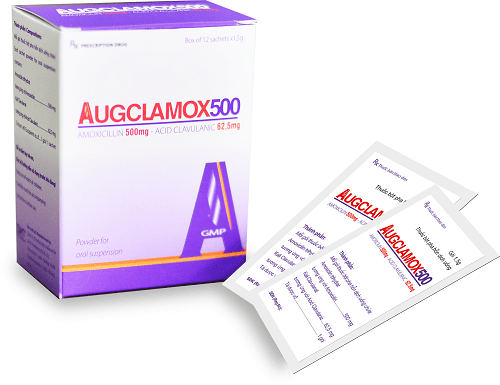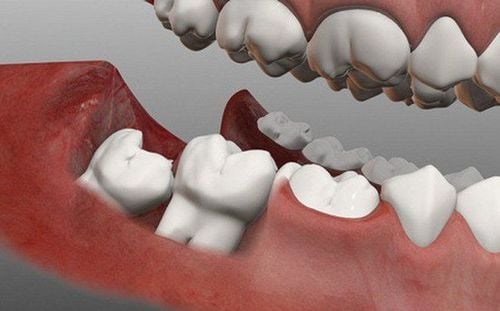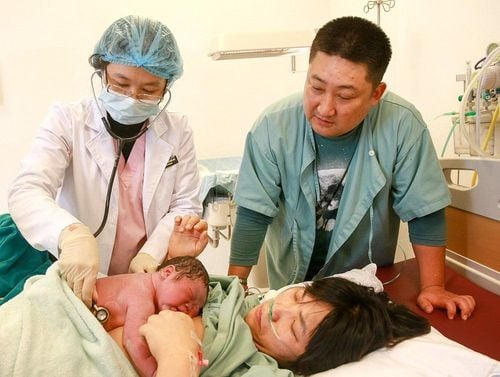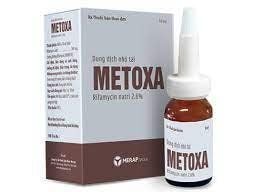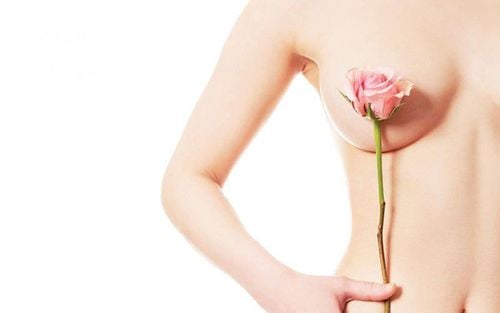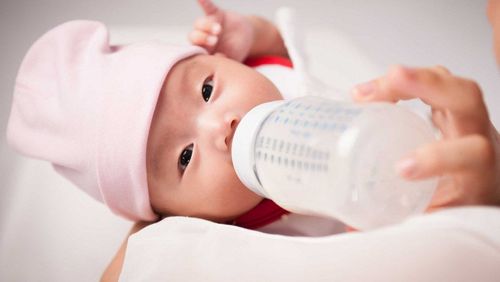This is an automatically translated article.
Pacifiers are designed similar to mother's nipples, and can be made of many different materials such as rubber, plastic or silicone. Pacifiers have many benefits but also many disadvantages. Parents should learn and consider carefully before using for children.1. What is a nipple?
If your baby is still fussy after feeding, burping, and after being comforted by your mother, a pacifier can be a good choice to soothe your baby. Sucking is a natural instinct in babies, when sucking will create a feeling of relaxation, security and comfort. What are nipples? A pacifier is a similar design to a mother's nipple, made of rubber, plastic, or silicone. Pacifiers with mouth shields are designed to be large enough to prevent your baby from swallowing them. Sucking on a pacifier can soothe babies when they are cranky and irritable, and can also help them relax and fall asleep. Due to the many benefits, many parents consider a pacifier as a basic item to have, next to wipes, diapers, ...However, besides the advantages, pacifiers also have the most disadvantages. determined. Parents should weigh both the advantages and disadvantages of a pacifier before deciding to use one for their child.
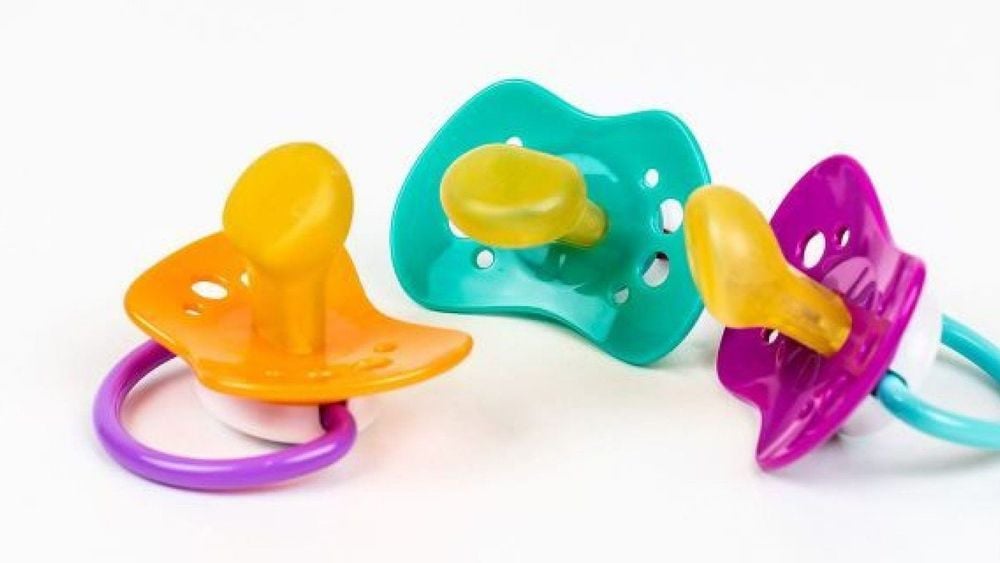
Núm vú giả là một vật được thiết kế tương tự như núm vú mẹ, được làm bằng cao su, nhựa hoặc silicon
2. What are the benefits of pacifiers?
What does a pacifier do? The effects of pacifiers can be listed as:Helps soothe babies: Children are born with very different personalities. Some babies like their mother's hugs and cuddles and only feed when they're hungry. But other babies love the breast even though they have had enough, if there is no breast, the baby will cry. A pacifier will be very helpful in these cases, sucking on a pacifier soothes the baby, giving the baby a feeling of comfort and security. Pacifiers can also help soothe babies during vaccinations or blood tests,... Reduce the risk of sudden infant death syndrome (SIDS): some studies have shown that infants use Using a pacifier while sleeping reduces the risk of sudden infant death. These studies do not show that pacifiers themselves prevent SIDS, just that there is a strong link between pacifier use and a lower risk of SIDS. Aids in travel: giving your baby a pacifier during a flight can help relieve ear pain caused by changes in air pressure. Pacifiers are also helpful if your baby is fussy in a car seat or stroller. Help your baby fall asleep: After being fed and burped, a pacifier can help your baby fall asleep. Easy to stop using: some parents think that, when they decide it's time to stop using a pacifier, they can put it away. If children are allowed to suck their thumbs, it is very difficult for parents to detox their children.
3. Disadvantages of pacifiers?
The baby is dependent on the pacifier: after using it for a while, the baby can become dependent on the pacifier. If your baby uses a pacifier to sleep, you may face mid-night fussing when the pacifier falls out of your baby's mouth. The longer a child uses a pacifier, the more dependent the child will be, and the child will be very uncomfortable and fussy if the mother does not allow it to be used. Increased risk of middle ear infections: Using pacifiers can increase the risk of middle ear infections in infants and young children. However, the rate of children with middle ear infections before 6 months of age is very low while the risk of sudden infant death is highest, so parents can consider giving babies a pacifier until 6 months of age to reduce the risk. SIDS and then discontinued to prevent the risk of middle ear infections. Affects baby's suckling: sucking on soft nipples for babies with breast or bottle nipples. Some babies who are introduced to a pacifier too early may breastfeed less often and quit breastfeeding early. However, in some babies, sucking on the nipple does not affect breastfeeding. Effects on oral health: pacifier use during the first few years of life does not cause long-term dental problems. However, if a baby uses a pacifier for a long time, their bite and teeth may become misaligned or not inserted properly.
Khi sử dụng một thời gian, trẻ có thể sẽ phụ thuộc vào núm vú giả
4. Smart way to use baby pacifier
If you decide to give your baby a pacifier, keep a few important things in mind:Wait until your baby is able to suckle well (at 3-4 weeks old) before giving it to your baby. pacifier. Limit the use of pacifiers if you are having difficulty breastfeeding. Don't use a pacifier as the first measure to soothe your baby. Mothers try to soothe the baby by changing the way of holding, swinging, carrying the baby out,... Choose a soft pacifier for the baby, pay attention to the choice of nipples made from safe materials and designs. Once you've chosen the right type of pacifier and your baby likes it, you should buy a few for your baby to use instead. If your baby doesn't like a pacifier, don't force him to use it. If the pacifier falls out of the baby's mouth while sleeping, if the baby is not fussy, you do not need to put the pacifier back. Consider discontinuing pacifiers if your child has recurrent otitis media. To ensure the safe latching of the baby's pacifier, parents should note:
Do not use pacifiers with decorative parts. Using a single-piece pacifier is best, or at least choose a pacifier that doesn't have any loose parts, posing a choking hazard. Keep nipples clean: wash and sterilize nipples thoroughly before giving them to your baby. Do not put sugar, honey or any sweets on the nipple as it will be harmful to the baby's gums and teeth. Change the pacifier regularly, paying attention to the size of the nipple that is appropriate for the age of the child. Watch out for loose parts on the nipple, in case these parts fall or get damaged, which can pose a choking hazard. Discard the pacifier if any of the parts are damaged. Do not use a bottle nipple as a substitute for a pacifier, the baby could take the nipple out of the cap and choke. Do not use a pacifier strap to tie the baby's neck or tie to the bed, to the baby's crib because there is a risk of suffocation due to the cord. Regularly inspect the nipple for wear and tear, discarding if the nipple has small cracks or signs of wear. Remove the pacifier if the baby is chewing. Because chewing can lead to small pieces falling out, posing a choking hazard. Choose baby pacifiers from reputable manufacturers, paying attention to the list of companies with recalled products.
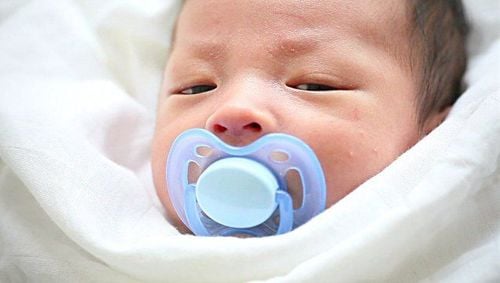
Hãy lựa chọn núm vú mềm cho trẻ từ các nhà sản xuất uy tín
Pediatrics department at Vinmec International General Hospital is the address for receiving and examining diseases that infants and young children are susceptible to: viral fever, bacterial fever, otitis media, pneumonia in children, ... With modern equipment, sterile space, minimizing the impact as well as the risk of disease spread. Along with that is the dedication from the doctors with professional experience with pediatric patients, making the examination no longer a concern of the parents.
Please dial HOTLINE for more information or register for an appointment HERE. Download MyVinmec app to make appointments faster and to manage your bookings easily.
Reference sources: babycenter.com, mayoclinic.org



